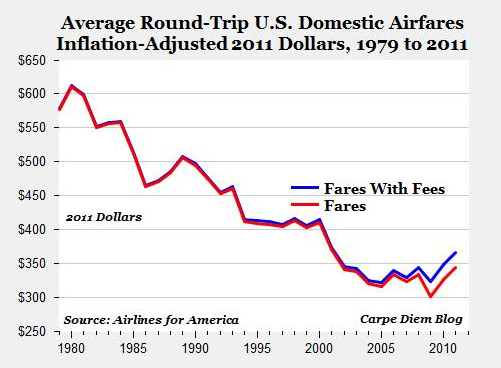Does the Vaccine Matter?
http://www.theatlantic.com/magazine/archive/2009/11/does-the-vaccine-matter/307723/
Personally I never felt the flu vaccine was worth a damn because every time I got one I felt like total crap for several days and didn’t see how there was any sort of payoff from getting it. Since it is well known that the Great Guessers In The Sky (i.e., the CDC) often get the strain totally wrong and even when they get it right, the strain has mutated enough that the vaccine provides little relief, so why not just take my chances.
This article (yes, it is long) is quite interesting in that it picks apart whether the vaccine does a damn thing at all. I have long known that doctors, as a species, were far from scientists, but it seems even medical researchers are not scientists either as a very well done study showing that the impacts of the flu vaccine was near zero couldn’t get accepted and reviewers provided such compelling arguments against publication thus:
“To accept these results would be to say that the earth is flat!”
This even before factoring in the impact of the fact that flu vaccines is a several hundred million dollar a year business (heck, it might be several billion by the time all impacts are made, such as Wally World offering ‘free’ immunizations).
To me this is also quite telling:
The history of flu vaccination suggests other reasons to doubt claims that it dramatically reduces mortality [i.e., claims it reduces mortality from all causes by 50%]. In 2004, for example, vaccine production fell behind, causing a 40 percent drop in immunization rates. Yet mortality did not rise. In addition, vaccine “mismatches” occurred in 1968 and 1997: in both years, the vaccine that had been produced in the summer protected against one set of viruses, but come winter, a different set was circulating. In effect, nobody was vaccinated. Yet death rates from all causes, including flu and the various illnesses it can exacerbate, did not budge. Sumit Majumdar, a physician and researcher at the University of Alberta, in Canada, offers another historical observation: rising rates of vaccination of the elderly over the past two decades have not coincided with a lower overall mortality rate. In 1989, only 15 percent of people over age 65 in the U.S. and Canada were vaccinated against flu. Today, more than 65 percent are immunized. Yet death rates among the elderly during flu season have increased rather than decreased.
The article also talks about Tamiflu antiviral drug, but there is a separate article just on Tamiflu, you can read it here:
Tamiflu: Myth and Misconception
http://www.theatlantic.com/health/archive/2013/02/tamiflu-myth-and-misconception/273167/
According to the article (I have read similar information elsewhere, so trust the article), antivirals are of only middlin efficacy and their liberal usage has already produced resistance in the virus’ it usage is targeting. So, pretty much our only tool against a viral infection is going to be totally useless once a real pandemic strikes. Isn’t it great to be an American?
As I mentioned about medical people not being scientists…
The CDC’s Nancy Cox [the director of the influenza division, regarding the govt backing of Tamiflu] also acknowledges that the science is not as sound as she might like, but the government still recommends their use. And as with vaccines, she considers additional randomized placebo-controlled trials of the antiviral drugs to be “unethical” and thus out of the question.
So, instead of actually doing the experiments to find out if the use of the vaccine or drug actually do more good than harm, our government’s top medical response agency would rather use voodoo and hope for the best!
Stick that in your pipe and smoke it!
When the best approach to a pandemic might be self-isolation and (really!) extra attention to hygiene, instead…
In the U.S., by contrast, our reliance on vaccination may have the opposite effect: breeding feelings of invulnerability, and leading some people to ignore simple measures like better-than-normal hygiene, staying away from those who are sick, and staying home when they feel ill. Likewise, our encouragement of early treatment with antiviral drugs will likely lead many people to show up at the hospital at first sniffle. “There’s no worse place to go than the hospital during flu season,” says Majumdar. Those who don’t have the flu are more likely to catch it there, and those who do will spread it around, he says. “But we don’t tell people this.”
Our for-profit health care system not only costs more, it causes _worse_ health outcomes: more people die and it costs more to kill them!
